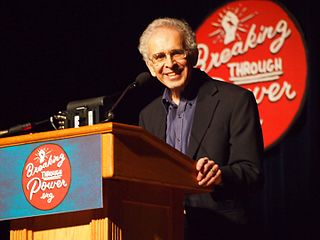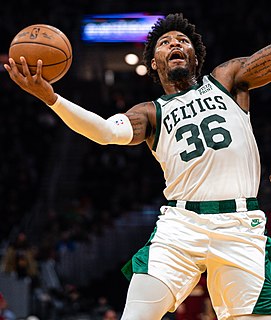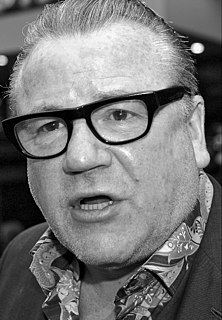A Quote by Michael F. Jacobson
Scientists should be doing a better job of guarding their own reputations and of the general scientific community.
Quote Topics
Related Quotes
One could count on one's fingers the number of scientists throughout the world with a general idea of the history and development of their particular science: there is none who is really competent as regards sciences other than his own. As science forms an indivisible whole, one may say that there are no longer, strictly speaking, scientists, but only drudges doing scientific work.
On every job you do, you've got to raise your game. My ambition is to just get better and better every job you do - you should never stop trying to get better. You have to teach yourself new things - I don't think you necessarily learn them from other people because you have your own style of doing things, but hopefully you get better.
Here's the scientific community saying, fundamentally, "If we don't change our ways, we're screwed." And they got no attention at all. Even though the Union of Concerned Scientists put out this statement which was signed by more than half of all the Nobel laureates in science and another 1,500 distinguished scientists.
A sense of being part of the great all-inclusive life prompts us to reflect on our own place and on how we ought to live. Guarding others' lives, the ecology and the earth is the same as protecting one's own life. By like token, wounding them is the same thing as wounding oneself. Consequently, it is the duty of each of us to participate as members of the life community in the evolution of the universe. We can do this by guarding earth's ecological system.
Statistics is, or should be, about scientific investigation and how to do it better, but many statisticians believe it is a branch of mathematics. Now I agree that the physicist, the chemist, the engineer, and the statistician can never know too much mathematics, but their objectives should be better physics, better chemistry, better engineering, and in the case of statistics, better scientific investigation. Whether in any given study this implies more or less mathematics is incidental.
Every climate scientist has his or her own views on some issues that differ from the mainstream in detail. But the broad findings of the IPCC (Intergovernmental Panel on Climate Change) have general support amongst scientists with relevant specialist expertise. The broad wisdom of the IPCC is strongly contested by a small number, and a small minority, of reputed climate scientists. It is not contested by the large majority of specialists, and by the leaders of the relevant learned academies in the countries of great scientific accomplishment.
I don't think any administration, when they come in, thinks that their job is to tell the scientists what the science looks like or to be quiet about the science. Scientists need to remain true and not allow science to be politicized. Scientists are not politicians, and no politician should consider themselves to be a scientist.
Despite the international scientific community's consensus on climate change, a small number of critics continue to deny that climate change exists or that humans are causing it. Widely known as climate change "skeptics" or "deniers," these individuals are generally not climate scientists and do not debate the science with the climate scientists.
No university ought to be merely a national institution....The universities should have their common ideals, they should have their common obligations toward each other. They should be independent of the governments of the countries in which they are situated. They should not be institutions for the training of an efficient bureaucracy, or for equipping scientists to get the better of foreign scientists; they should stand for the preservation of learning, for the pursuit of truth, and in so far as men are capable of it, the attainment of wisdom.































